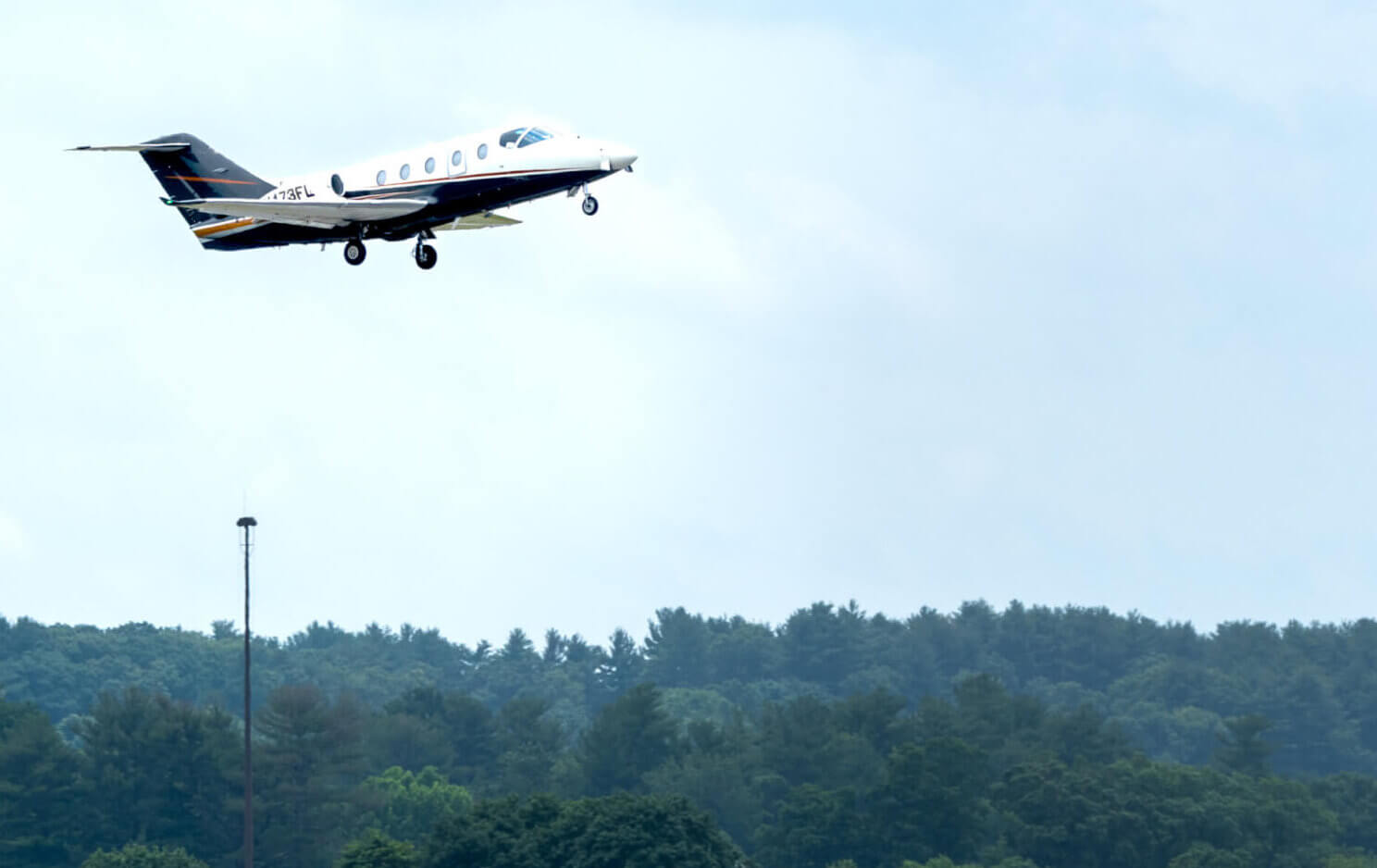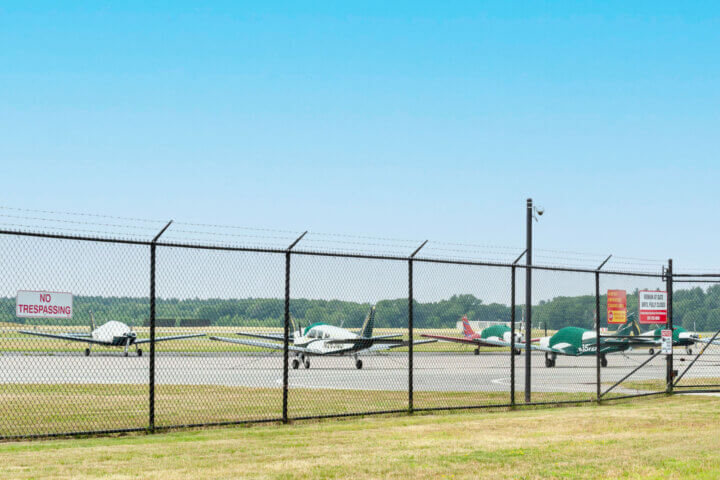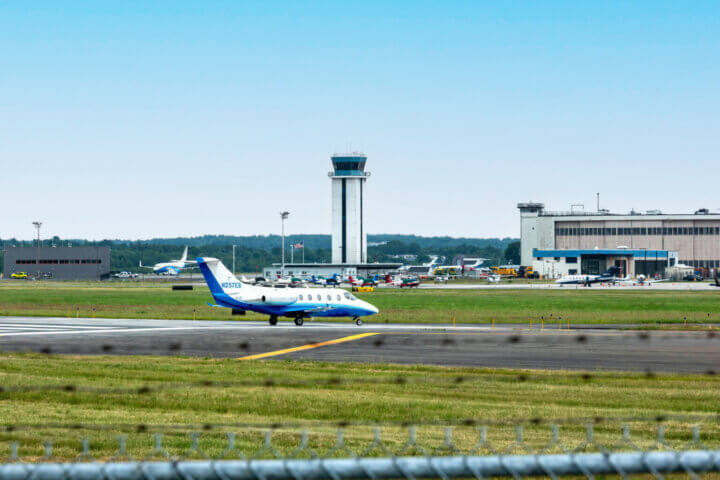By Erin Tiernan — Erin@concordbridge.org
A controversial proposal to expand jet hangar space at Hanscom Field spotlights clashing economic and environmental priorities just as aggressive carbon-cutting measures are being enacted at the state and local levels — including in Concord.
Developers are regrouping and the project is in limbo following the state’s rejection of an environmental review — partly due to skepticism over developers’ claims it would result in fewer flights and a net reduction in carbon emissions.
The proposal includes added fuel storage capacity, 17 new hangars, and renovation of another — primarily for private jets. The state wants developers to address critics’ competing claims that the project would bring more jet traffic.
There is no deadline for developers to respond. They declined through a spokesperson to say how or when they’ll proceed.
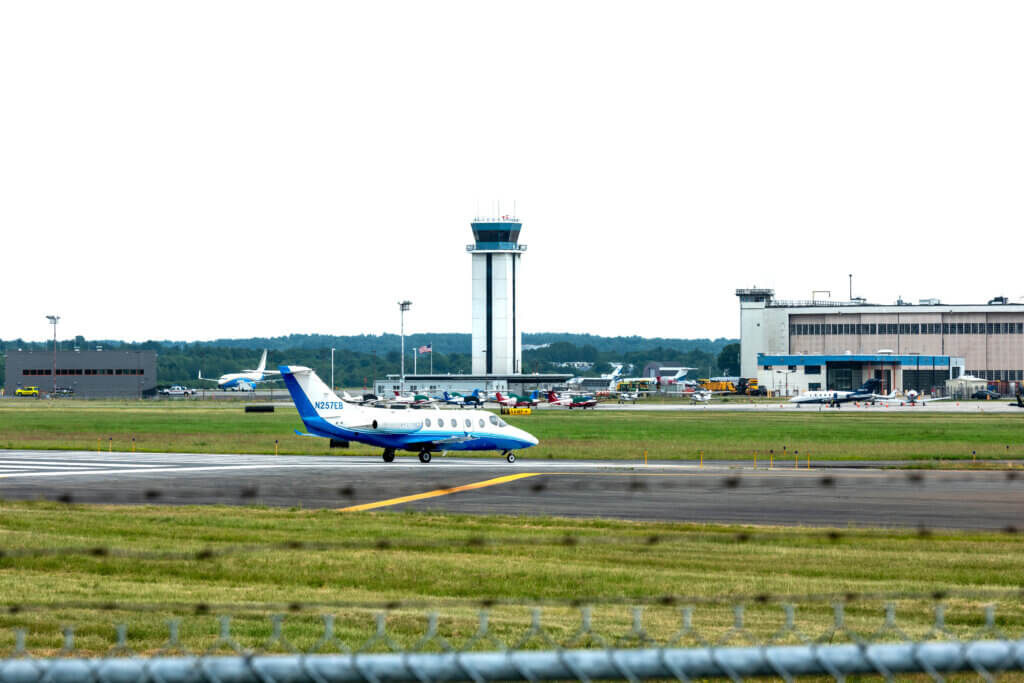
A tactical move
A spokesperson for Stop Private Jet Expansion, a consortium of environmental groups, called the delay and silence around the timeline “a tactical move” by developers.
“They’re intentionally drawing out this process in hopes people get distracted,” Jamie McGonagill said, asserting developers could then “sneak” in their supplemental review.
Opponents hope the Massachusetts Port Authority, which runs the airport and is backing the project, will bend to criticism.
The state environmental review mirrors the federal process, meaning reviewers don’t have regulatory authority to block projects. The exercise is designed to identify and plan mitigation for the consequences of projects like the one proposed at Hanscom.
“Massport is really the one who can stop this project,” McGonagill said.
Neil Rasmussen of Concord non-profit Save Our Heritage has worked for decades to protect historic landmarks like Walden Pond, which recently landed on an endangered list due to the threat of noise and pollution from a Hanscom expansion.
“It’s a political decision of whether to stop it or not,” he said, suggesting Gov. Maura Healey could “tangle up the heck out of this forever.”
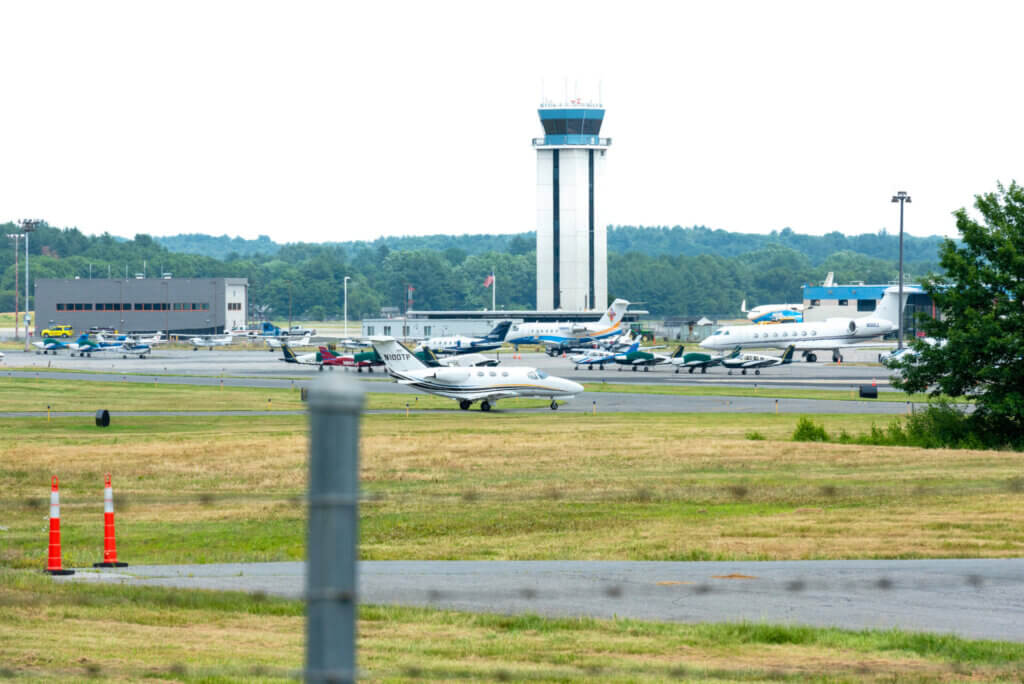
Phineas Baxandall, policy director at the Massachusetts Budget and Policy Center, has researched transparency at quasi-public agencies. He said “special purpose” entities like Massport were designed to fulfill narrow missions.
“It can be challenging to integrate broader public interests, like the climate, into their focus,” Baxandall said. “They’re trying to do things like maximize revenues or flights and other kinds of performance indicators that have long been their meat and potatoes.”
He pointed to an ongoing push by state Sen. Michael Barrett (D-Lexington) to amend Massport’s charter as one of the only ways to influence big agencies.
Refocusing priorities “requires some combination of rewriting their charters or rules over time and replacing the kinds of people [on] the governing boards,” Baxandall said.
Massport’s board appointed a new CEO, Richard Davey, in May and welcomed two new members in September. “The turnover at the top is a valuable opportunity for us,” McGonagill said.
Potential 5-year delay
The fight could be long. According to state guidelines, Massport-hired developers North Airfield and Runway Realty could have up to five years to regroup if they demonstrate they have “taken major steps in a continuous sequence to advance the project.”
“This time period is generally 3 to 5 years, but there are exceptions,” state Energy and Environmental Affairs office spokesperson Maria Hardiman said of how long before a project is deemed “lapsed.”
A Massport official said at a public meeting last month that developers had retained a third-party consultant, per state instructions, to address contradictions raised in the environmental review.
A developers’ spokesperson, however, told The Concord Bridge he had “no knowledge” of such a hire. On September 27, he confirmed there had been “nothing at this point.”
Asked for clarification, Massport officials directed questions to developers.
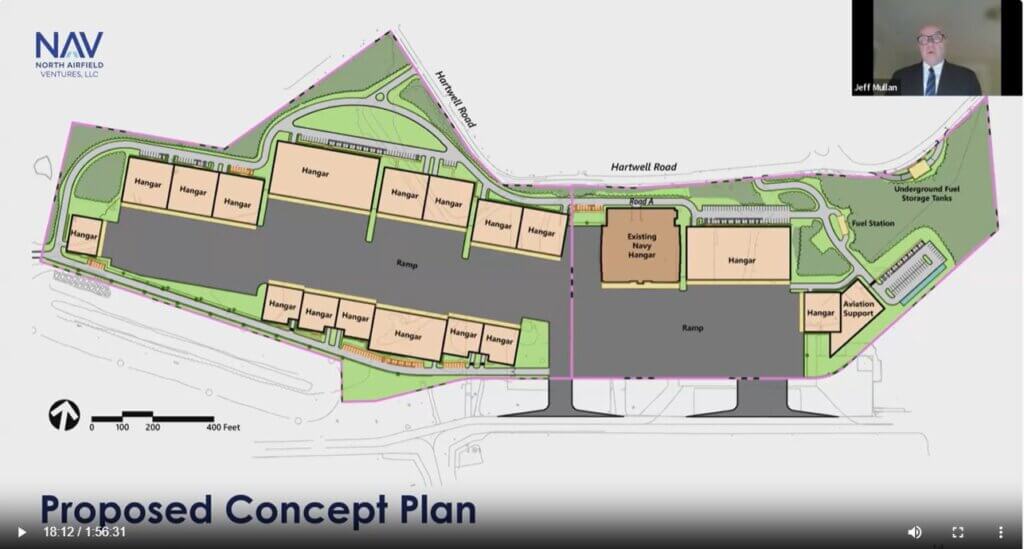
A similar fight
The Hanscom project may not be easy to stop.
In Connecticut, neighbors and advocates have been fighting a runway expansion at Tweed New Haven Airport involving contradictory environmental claims.
Roger Reynolds, senior legal analyst for Save the Sound, a Connecticut-based group dedicated to protecting rivers and wetlands, has filed a federal appeal on behalf of his organization against what he calls a “dishonest environmental review process.”
As with Hanscom, Tweed developers asserted that the expansion would result in a net decrease in flights and greenhouse gas emissions.
“It’s a ridiculous claim,” he said.
‘Box checking’
State and federal environmental reviews are public processes that both Reynolds and lawmaker Barrett have said are more like “box-checking” exercises.
In the Tweed case, those boxes were checked with little pushback from local or federal authorities, Reynolds said. That triggered Save the Sound’s lawsuit.
Tweed developers cleared a federal environmental review despite an outcry from neighbors, environmental groups, East Haven officials, Connecticut’s Department of Health and Human Services, and the U.S. Environmental Protection Agency.
“We feel like we can win, and it’s important that we do win — not only so we get an honest environmental analysis for this case, but to set a precedent for future expansions like this one,” Reynolds said.
Rasmussen said the true need is for stronger environmental regulations on aviation, especially private jets. Even if Hanscom developers “admit the truth,” he said, no permits currently limit carbon emissions on airplanes or projects that would expand jet traffic.


